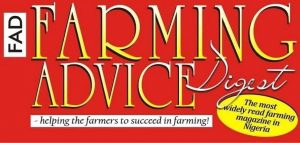Treatment and control of Coccidiosis of Turkeys
Introduction
Infection of turkeys with Eimeria spp. This disease is not very common in commercially reared turkeys though most turkey growers receive preventative medication for at least part of their lives. Five species of Eimeria have been identified that cause lesions in turkeys, of which two are associated with significant disease effects. E. meleagrimitis affects the upper small intestine, while E. adenoides affects the caecae and rectum. E. gallopavonis and E. meleagridis affect the lower small intestine rectum and caecae, while E. dispersa is found in the small intestine.
Read also: How to control fowl pox diseases and save poultry
Signs
Huddling.
Weight loss.
Depression.
Watery diarrhoea that may occasionally be blood stained or contain clumps of mucus or shed mucosa.
Tucked appearance, ruffled feathers.
Post-mortem lesions
The affected area of intestine shows thickening of the wall and dilation. The contents may be haemorrhagic or be watery with white material shed from the mucosa.
Diagnosis
Signs, lesions, microscopic exam of scrapings (oocysts, gamonts). Differentiate from necrotic enteritis.
Treatment
Toltrazuril, Sulphonamides (e.g. Sulphaquinoxaline), Amprolium.
Read also: Essential poultry nutrition for maximum production
 Learn More
Learn MorePrevention
The ionophore coccidiostats lasalocid and monensin are routinely used in turkey growers, typically to 12 weeks of age. Diclazuril is also used for this purpose. Dosage levels of ionophores may be critical to efficacy and safety. Exposure of previously unmedicated birds to these compounds can cause toxicity. Salinomycin is toxic for turkeys even at very low doses. Avoid use of tiamulin in ionophore treated birds.
For more information and updates join our WhatsApp group HERE
Follow us on Twitter HERE
Join our Telegram group HERE











